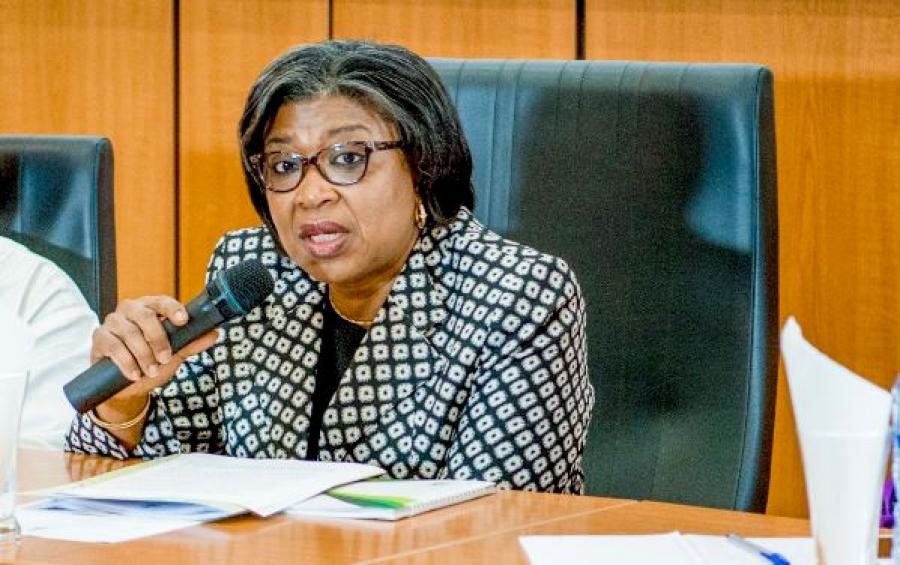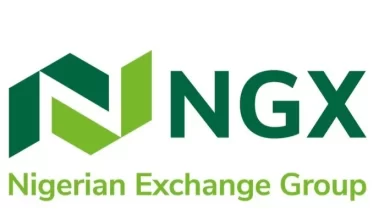DMO worries over low revenue as Nigeria’s debt nears N81tn

Nigeria’s total public debt may hit N81.64tn this year, according to findings
The figure was arrived at based on the 2022 Debt Sustainability Analysis Report by Debt Management Office.
According to the debt office, the increase in total public debt-to-GDP to 37.1 per cent in 2023 from 23.4 per cent as of September 2022 was due to the inclusion of an estimated N8.8tn 2023 debt, the government’s Ways and Means debt of over N23tn, and an estimated Promissory Notes issuance of N2.87tn in the debt stock.
As of December 2022, Nigeria’s total public debt was N46.25tn, which means they might be an increase of 76.52 per cent this year.
In the report, the DMO warned that the Federal Government’s projected revenue of N10tn for 2023 cannot support fresh borrowings.
According to the office, the projected government’s debt service-to-revenue ratio of 73.5 per cent for 2023 is high and a threat to debt sustainability. It noted that the government’s current revenue profile cannot support higher levels of borrowing.
In a report titled, ‘Report of the Annual National Market Access Country (MAC) Debt Sustainability Analysis (DSA),’ the debt office said, “The projected FGN Debt Service-to-Revenue ratio at 73.5 per cent for 2023 is high and a threat to debt sustainability.
“It means that the revenue profile cannot support higher levels of borrowing. Attaining a sustainable FGN Debt Service-to-Revenue ratio would require an increase of FGN Revenue from N10.49tn projected in the 2023 Budget to about N15.5tn.”
DMO stated that the government must pay attention to revenue generation by implementing far-reaching revenue mobilisation initiatives and reforms including the Strategic Revenue Growth Initiatives and all its pillars with a view to raising the country’s tax revenue to GDP ratio from about 7 percent to that of its peer.
The Federal Government will be unable to borrow a lot as it nears its self-imposed debt limit of 40 per cent, the Debt Management Office has said.
DMO noted that the country’s debt stock is within sustainable limits at 37.1 per cent but is nearing a point where it has little space for borrowing. It said, “The Country’s Debt stock remains sustainable under these criteria, but the borrowing space has been reduced when compared to Nigeria’s self-imposed debt limit of 40 percent set in the MTDS, 2020-2023.”
It recommended that even though the government must be careful with borrowing even though it had a borrowing space of 2.9 per cent (about N14.66tn) due to its self-imposed limit of 40 per cent.
It stressed, “It is recommended that this should not be used as a basis for higher level of borrowing as was the case in the 2023 Budget. This is because the outcome of the Shock Scenario, which is more realistic in the circumstances, exceeded the self-imposed limit.”
To reduce borrowing and budget deficit, DMO stated that the government should encourage the private sector to fund some of the capital projects that are being financed from borrowing through the Public-Private Partnership schemes. It added that the Federal Government can reduce borrowing through the privatisation and/or sale of Government assets.
N3tn promissory notes
The PUNCH also learnt that the Federal Government is considering issuing promissory note as its judgment debt and contractual arrears nears N3tn.
The Debt Management Office disclosed this in its 2022 Debt Sustainability Analysis Report.
In its Market Access Country-Debt Sustainability Analysis Framework, the debt office included the amount in forming the baseline for its analysis.
The report read in part, “The 2022 MAC-DSA exercise used the Gross Public Debt, that is, the General Government Debt, comprising the External and Domestic Debts of the FGN, thirty-six States and the Federal Capital Territory.
“Under the Baseline, the FGN Domestic Debt stock includes the FGN Ways and Means Advances at the CBN in the sum of N22.72tn (which has now been approved by the National Assembly) and the additional N1.0tn in 2022 Supplementary Budget, totalling N23.72tn.
“Also, included in the FGN Domestic Debt under the Baseline are contractual arrears and judgement debts of about N2.87tn that are being considered for possible clearance through issuance of Promissory Notes in 2023. The FGN’s contingent liabilities, including Guarantees in the sum of N4.58tn as of December 2021 was considered in the Alternative Scenario.”
According to Investopedia.com, a promissory note is a debt instrument that contains a written promise by one party (the note’s issuer or maker) to pay another party (the note’s payee) a definite sum of money, either on-demand or at a specified future date.
Section 4 of the Government Promissory Notes Act states that government promissory notes are paid from the general revenue and assets of the federation.
It read in part, “The principal sums and interest represented or secured by any Government promissory notes are hereby charged upon and shall be payable out of the general revenue and assets of the Federation.”
The PUNCH reported in April that the Federal Government’s promissory note debts rise by 60 per cent in four years despite significant repayments.
Promissory notes first appeared on the public debt record of the DMO in December 2018 as N331.27bn.
By December 2022, it had risen to N530.03bn, which means the Federal Government piled up N198.76m extra promissory debt in four years while paying off redeemable notes.
It was N732.62bn in 2019, N971.66bn in 2020 and N762.54bn in 2021.
Since they are mostly non-interest-bearing notes, it means that the Federal Government offered at least a total of N971.66bn promissory notes, which was the highest figure in 2020, and redeemed at least N209.12bn since 2020.
If the National Assembly approves the conversion of the arrears and judgement debts into promissory notes, Nigeria’s total promissory note debt would likely rise to N3.42tn, crossing the billion naira threshold for the first time since it was introduced in 2018.
Earlier in May, the former President, Muhammadu Buhari, wrote to the National Assembly to seek approval for payment of judgment debts owed by the Federal Government to the tune of $566.7m, £98.5m and N226.2bn.
The debt when converted to naira using the official dollar rate of N460.78 and N574.3 for pounds amounted to N544bn.
The request came five days before the end of the Buhari administration.
In a letter addressed to the former President of the Senate, Ahmad Lawan; and the former Speaker of the House of Representatives, Femi Gbajabiamila, Buhari said the government would make the payment through the issuance of promissory notes.
However, the 9th House of Representatives wound down without approving the loan request by Buhari for the Federal Government to pay some judgment debts totalling approximately N543,594,989,247.
The Chairman of the House Committee on Aids, Loans and Debt Management Ahmed Dayyabu, laid the report on the presidential request but the lawmakers resolved that work had not been concluded on it and stepped down its consideration till the 10th House.
The Director-General of the DMO, Ms Patience Oniha, recently said promissory notes, budget deficit and constant borrowing had led to an increase in public debt.
Among other reasons, she said, “the government has been issuing promissory notes to settle obligations, for which it doesn’t really have the revenue or cash. That is why the debt stock has been growing.”
In its DSA report, the DMO further noted that Nigeria should focus on increasing its revenue as the country has limited borrowing space.
The report added, “The analysis of the results of 2022 MAC-DSA shows that the Total Public Debt-toGDP ratio is projected to increase to 37.1 per cent in 2023 relative to 23.4 per cent as at September 2022, due to the inclusion of the N8.80tn (New Borrowings) for the year 2023, the FGN Ways and Means at the CBN of over N23tn and estimated Promissory Notes issuance of N2.87tn in the Debt stock under the Baseline Scenario.
“The Country’s Debt stock remains sustainable under these criteria, but the borrowing space has been reduced when compared to the Nigeria’s self-imposed debt limit of 40 per cent set in the MTDS, 2020-2023. On the other hand, FGN Debt Service-to-Revenue ratio at 73.5 per cent in 2023 exceeds the recommended threshold of 50 per cent due to low revenue, which means that there is need to significantly increase Government revenue.
“Under the Alternative Scenario, the Total Public Debt-to-GDP ratio at 45.4 per cent in 2023 exceeds the Nigeria’s self-imposed debt limit of 40 per cent, while the FGN Debt Service-to-Revenue also exceeds the recommended threshold of 50 per cent.”




